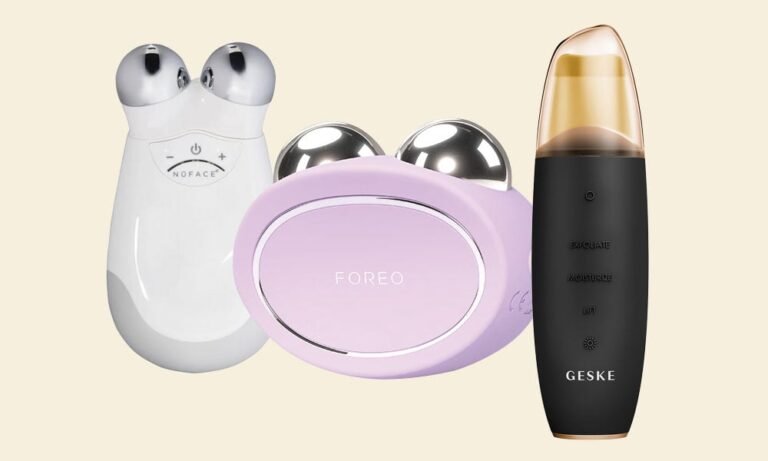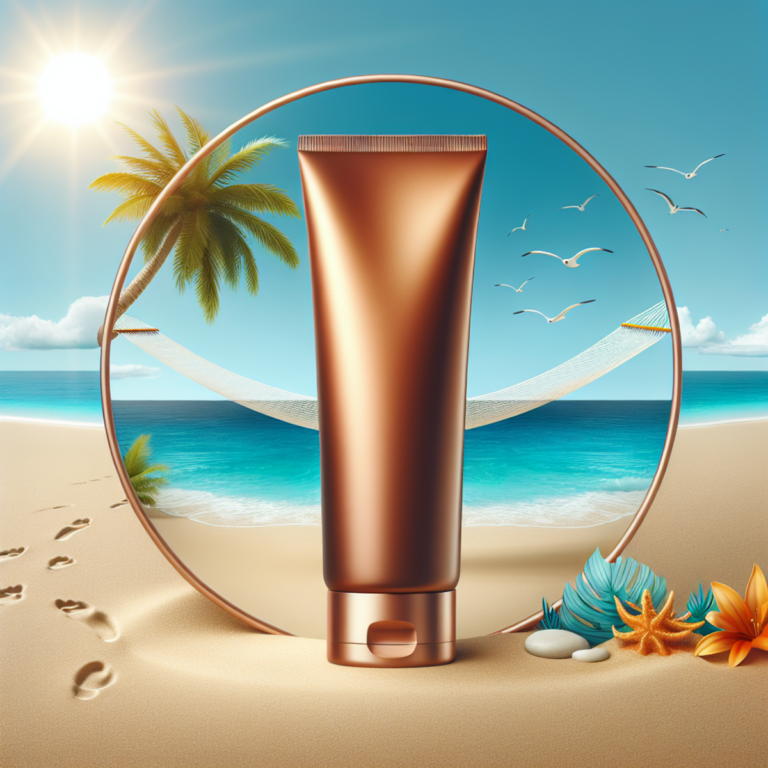Hyaluronic Acid: What’s the Hype?

Introduction
Hyaluronic Acid: What’s the Hype?
Hyaluronic acid is a naturally occurring substance in the body, found in eyes, joints, and skin. This compound holds significant importance in both the medical and skincare industries due to its versatile benefits.
Hyaluronic acid, often referred to as HA, plays a crucial role in:
- Maintaining healthy and supple skin
- Promoting joint lubrication
- Supporting eye health
Its natural presence in the body underscores its relevance for overall well-being.
The Many Benefits of Hyaluronic Acid
Hyaluronic acid offers a multitude of benefits in various areas, including joints, skin, eyes, and wound healing. Let’s explore these advantages in more detail:
1. Joint Health
Hyaluronic acid plays a crucial role in maintaining healthy joints. It acts as a lubricant, reducing friction between bones and allowing for smooth movement. By providing cushioning and shock absorption, it helps alleviate joint discomfort and stiffness. Many individuals with conditions like osteoarthritis find relief through hyaluronic acid injections, which improve joint mobility and reduce pain.
2. Skin Hydration
One of the most well-known benefits of hyaluronic acid is its ability to hydrate the skin. It has an exceptional capacity to attract and retain moisture, binding up to 1000 times its weight in water. This hydration property helps plump the skin, reducing the appearance of fine lines and wrinkles. By improving skin elasticity and firmness, hyaluronic acid contributes to a more youthful complexion.
3. Eye Moisture
Hyaluronic acid also plays a vital role in eye health by providing moisture and lubrication to the ocular surface. It helps keep your eyes hydrated, reducing dryness and irritation. Eye drops containing hyaluronic acid are commonly used to relieve symptoms of dry eye syndrome and provide long-lasting comfort.
4. Wound Healing
When it comes to wound healing, hyaluronic acid is a true champion. It supports tissue repair by promoting cell migration and proliferation at the site of injury. Additionally, it helps regulate inflammation, allowing for a controlled healing process. By accelerating wound closure and minimizing scarring, hyaluronic acid aids in achieving optimal recovery.
The benefits of hyaluronic acid are abundant across different areas such as joint health, skin hydration, eye moisture, and wound healing. Its lubricating properties for joints, moisturizing effects for the skin and eyes, and its ability to enhance wound repair make it a valuable substance with numerous applications.
Exploring the Diverse Applications of Hyaluronic Acid
Hyaluronic Acid Skincare:
Hyaluronic acid plays a crucial role in improving skin health and maintaining its youthful appearance. It is known for its exceptional ability to retain moisture, making it an excellent hydrating ingredient in skincare products.
Here are some key benefits of hyaluronic acid for the skin:
- Hydration: By attracting and binding water molecules, hyaluronic acid helps to replenish and restore moisture levels in the skin, resulting in a plump and dewy complexion.
- Barrier Function: Additionally, hyaluronic acid supports the skin’s natural barrier function, keeping it hydrated and protected against external aggressors.
- Collagen Synthesis: It also promotes collagen synthesis, which is essential for maintaining skin elasticity and reducing the appearance of fine lines and wrinkles.
- Acne Scar Treatment: In terms of treating acne scars, hyaluronic acid can help to improve their appearance by promoting skin healing and reducing inflammation.
Hyaluronic Acid Joint Health:
Hyaluronic acid has gained recognition for its lubricating properties, making it valuable for joint health. It is a key component of synovial fluid, which surrounds and cushions the joints, enabling smooth movement.
Here’s how hyaluronic acid benefits joint health:
- Lubrication: As we age or experience joint-related conditions such as osteoarthritis, the natural production of hyaluronic acid may decrease. Supplementing with hyaluronic acid can help to maintain joint lubrication and reduce discomfort associated with joint stiffness and inflammation.
Hyaluronic Acid Eye Health:
The moisturizing and lubricating effects of hyaluronic acid make it beneficial for eye health. It helps to keep the eyes moist, reducing dryness and discomfort caused by factors such as environmental irritants or prolonged screen time.
Here’s how hyaluronic acid benefits eye health:
- Moisture Retention: Hyaluronic acid eye drops can provide relief for individuals with dry eyes or those recovering from eye surgeries.
Hyaluronic Acid in Wound Healing:
Hyaluronic acid plays a vital role in wound healing and scar reduction. It promotes tissue regeneration by providing a favorable environment for cell growth and migration.
Here’s how hyaluronic acid benefits wound healing:
- Wound Healing: Hyaluronic acid helps to accelerate the healing process, reduce inflammation, and minimize the formation of scars. It has been used in various forms, such as dressings or topical gels, to enhance wound healing outcomes.
In conclusion, hyaluronic acid has diverse applications in skincare, joint health, eye health, and wound healing. Its moisturizing, lubricating, and regenerative properties make it a valuable ingredient in various products. Whether you are looking to improve your skin’s hydration, support joint function, alleviate dry eyes, or aid in wound healing, hyaluronic acid offers numerous benefits across different areas of health and wellness.
Different Forms of Hyaluronic Acid Products
Hyaluronic acid comes in different forms to suit different needs and preferences. Each form has its own specific uses and benefits, as well as potential limitations. Here are the different forms of hyaluronic acid products:
- Oral supplements: These are hyaluronic acid capsules or tablets that can be taken by mouth. They are often marketed as joint health supplements and aim to support healthy joints by providing lubrication and cushioning. However, it’s still unclear whether oral hyaluronic acid supplements are truly effective for joint health, as researchers have different opinions on this matter.
- Topical creams and serums: Hyaluronic acid is a popular ingredient in skincare products because of its ability to moisturize and hydrate the skin. Topical creams and serums containing hyaluronic acid can help replenish moisture, improve skin elasticity, and reduce the appearance of fine lines and wrinkles. These products are applied directly to the skin and are suitable for individuals looking to enhance their skincare routine.
- Injectables (dermal fillers): Hyaluronic acid dermal fillers are used for cosmetic purposes to restore volume, smooth out wrinkles, and enhance facial contours. They are injected into the skin by a healthcare professional and provide immediate results. Dermal fillers can be a great option for individuals seeking temporary improvements in facial aesthetics.
It’s important to consult with a healthcare professional or dermatologist before using any form of hyaluronic acid product. They can assess your specific needs and recommend the most appropriate form for you. Additionally, it’s essential to follow the instructions provided by the manufacturer or healthcare provider when using hyaluronic acid products to ensure safety and optimal results.
Keep in mind that different forms of hyaluronic acid products may have varying levels of effectiveness depending on the intended purpose. It’s also worth noting that individual results may vary.
Safety Considerations When Using Hyaluronic Acid
When using hyaluronic acid products, it is important to be aware of certain safety considerations to ensure a positive and safe experience. Here are some key points to keep in mind:
- Risk of Allergic Reactions: Although rare, some individuals may be allergic to hyaluronic acid. It is advisable to perform a patch test before using any new product containing hyaluronic acid, especially if you have sensitive skin or a history of allergies. If you experience any redness, itching, or irritation after using a product, discontinue use immediately and consult a dermatologist.
- Proper Medical Guidance: Certain treatments involving hyaluronic acid, such as dermal fillers or injectables for cosmetic purposes, should only be administered by trained medical professionals. It is essential to seek the expertise of a qualified healthcare provider who can assess your individual needs and administer the treatment safely.
- Quality and Source of Products: When purchasing hyaluronic acid products, it is crucial to choose reputable brands known for their quality and safety standards. Look for products that are FDA-approved or have undergone rigorous testing to ensure their effectiveness and safety.
- Potential Side Effects: While generally well-tolerated, some individuals may experience temporary side effects when using hyaluronic acid products. These can include mild redness, swelling, or bruising at the injection site for dermal fillers. In topical formulations, some people may experience temporary dryness or flakiness as their skin adjusts to the product. If any side effects persist or worsen over time, consult a healthcare professional.
- Pregnancy and Breastfeeding: If you are pregnant or breastfeeding, it is recommended to consult with your healthcare provider before using any new skincare or health products containing hyaluronic acid. While topical use is generally considered safe during pregnancy and breastfeeding, it is always best to seek professional advice to ensure the well-being of both you and your baby.
By keeping these safety considerations in mind, you can enjoy the benefits of hyaluronic acid while minimizing any potential risks. Remember, it is essential to prioritize your health and consult a healthcare professional for personalized guidance when using hyaluronic acid products.
The Science Behind Hyaluronic Acid’s Effectiveness
Hyaluronic acid is effective because it can attract and hold onto water molecules in the skin, keeping it hydrated and plump. This natural moisturizer has the ability to bind up to 1000 times its weight in water, making it an excellent hydrating ingredient for the skin. By keeping moisture levels balanced, hyaluronic acid helps prevent water loss through the skin, which can lead to dryness and dullness.
How Hyaluronic Acid Works
The effectiveness of hyaluronic acid depends on two main factors:
- Water Retention: Hyaluronic acid acts as a humectant, which means it attracts and retains moisture from the environment. This helps to replenish hydration levels in the skin and maintain its natural barrier function.
- Molecular Weight: Hyaluronic acid comes in different sizes, known as molecular weights. These different sizes determine how deeply the hyaluronic acid can penetrate into the skin.
Water Retention
Hyaluronic acid’s ability to hold onto water is what makes it such a valuable ingredient in skincare products. When applied topically, it forms a thin film on the surface of the skin, creating a barrier that locks in moisture. This helps to:
- Keep the skin hydrated throughout the day
- Improve elasticity and firmness
- Reduce the appearance of fine lines and wrinkles
- Enhance overall smoothness and softness
Molecular Weight
The size of hyaluronic acid molecules affects their ability to penetrate into different layers of the skin:
- Low Molecular Weight (LMW) Hyaluronic Acid: These smaller molecules can easily penetrate into the deeper layers of the skin. They have been shown to stimulate collagen production, improve elasticity, and provide long-lasting hydration.
- High Molecular Weight (HMW) Hyaluronic Acid: These larger molecules mainly stay on the surface of the skin. They form a moisturizing barrier that helps to smooth out rough texture, plump up fine lines, and restore a healthy glow.
The Importance of Balance
Both low and high molecular weight hyaluronic acid are beneficial for the skin, but it’s essential to maintain a balance in skincare formulations. Using a combination of different molecular weights can target multiple skin concerns and provide comprehensive hydration.
Conclusion
Understanding how hyaluronic acid works at a scientific level helps us appreciate its role in skincare even more. Its unique ability to attract and retain water, along with its versatility in penetrating different layers of the skin, makes it a valuable ingredient for achieving healthy and radiant skin.
By harnessing the power of water retention and molecular weight dynamics, hyaluronic acid stands as a cornerstone of effective skincare formulations, delivering visible and long-lasting benefits for skin health.
Future Potential of Hyaluronic Acid in Medical Treatments
As research on hyaluronic acid continues to evolve, scientists are exploring its potential in novel medical applications beyond its traditional roles. The versatile properties of hyaluronic acid make it a promising candidate for various medical treatments. Here are some key points to consider:
1. Emerging Research
Recent studies have shed light on the potential of hyaluronic acid in treating respiratory conditions. One study found that hyaluronic acid-based nasal drops can help alleviate symptoms of allergic rhinitis by reducing nasal congestion and improving airflow. Another study explored the use of hyaluronic acid as an inhalation therapy for chronic obstructive pulmonary disease (COPD), showing promising results in reducing airway inflammation and improving lung function.
2. Respiratory Conditions
Hyaluronic acid’s ability to retain moisture and lubricate tissues makes it a valuable component in respiratory treatments. It helps soothe irritated airways, reduce inflammation, and promote healing. By providing a protective barrier against environmental irritants, hyaluronic acid may offer relief for individuals suffering from asthma, bronchitis, and other respiratory conditions.
3. Potential Benefits in Respiratory Treatments
The potential benefits of incorporating hyaluronic acid into respiratory treatments extend beyond symptom relief. Ongoing studies suggest that it may help prevent further damage to the airways by promoting tissue repair and reducing scarring. This could be especially significant for individuals with chronic respiratory conditions. Additionally, hyaluronic acid’s moisturizing properties can help combat dryness and irritation commonly associated with respiratory conditions.
As more research is conducted, the future holds promising possibilities for the use of hyaluronic acid in medical treatments. Its ability to support tissue growth and provide lubrication makes it a valuable asset in various therapeutic applications, including respiratory treatments. However, it is important to note that further studies are needed to fully understand the efficacy and safety of using hyaluronic acid in these contexts.
Incorporating Hyaluronic Acid into Your Daily Routine
When it comes to incorporating hyaluronic acid into your daily skincare routine, there are a few practical tips you can follow to maximize its benefits. From choosing the right products to ensuring optimal absorption, here’s a guide to help you make the most of hyaluronic acid:
1. Choose the Right Products
Look for skincare products that specifically mention hyaluronic acid as one of their key ingredients. It’s important to note that not all hyaluronic acid is created equal, as different molecular weights can affect its effectiveness for various skin benefits. Opt for products that contain low molecular weight hyaluronic acid, as this form has smaller molecules that can penetrate deeper into the skin and provide better hydration.
2. Layering Technique
Hyaluronic acid works best when applied to damp skin, so make sure to apply it immediately after cleansing or toning your face. This will help lock in moisture and enhance its hydrating effects. Gently pat the product onto your skin rather than rubbing it in, as this will help prevent any potential irritation.
3. Maximize Absorption
To further enhance the absorption of hyaluronic acid, consider using a facial mist or toner before applying the product. These additional layers of moisture will create a moist environment on your skin, allowing the hyaluronic acid to attract and retain even more water molecules.
4. Follow with Moisturizer
After applying hyaluronic acid, seal in its hydrating effects by following up with a moisturizer. This will help create a barrier on the skin’s surface, preventing transepidermal water loss and maximizing the benefits of hyaluronic acid.
When it comes to choosing hyaluronic acid skincare brands, there are several reputable options available. Here are a few recommendations known for their quality and effectiveness:
- The Ordinary Hyaluronic Acid 2% + B5
- Drunk Elephant B-Hydra Intensive Hydration Serum
- Neutrogena Hydro Boost Water Gel
- Skinceuticals Hyaluronic Acid Intensifier
Incorporating hyaluronic acid into your daily routine can be a game-changer for your skin. By following these tips and choosing the right products, you can enjoy the full benefits of this powerful ingredient and achieve a hydrated, youthful complexion.
Remember, skincare is just one aspect of maintaining overall skin health. It’s important to adopt a holistic approach that includes a healthy diet, regular exercise, and adequate sleep to truly nourish your skin from within.
Final Thoughts
As you explore the world of skincare and health, consider adding hyaluronic acid to your daily routine. Discover how this amazing substance can improve your skin’s health and appearance, as well as contribute to your overall well-being.
While hyaluronic acid offers many benefits, it’s important to remember that it’s not a magic solution. Taking care of your skin and body requires a comprehensive approach. Here are some key points to keep in mind:
- Hyaluronic acid is just one part of the equation: It can help hydrate and plump your skin, but it won’t address other issues like acne or sun damage. Make sure to use other products or treatments as needed.
- Good skincare starts from within: Eating a balanced diet, staying hydrated, getting enough sleep, and managing stress are all crucial for healthy skin. Don’t rely solely on external products.
- Protect your skin: Sunscreen is your best defense against premature aging and skin cancer. Use it every day, rain or shine.
- Listen to your body: Everyone’s skin is different, so pay attention to how yours reacts to certain products or ingredients. If something doesn’t feel right, consult a dermatologist.
By following these guidelines and incorporating hyaluronic acid into your skincare routine, you can maximize its benefits and achieve healthier, more radiant skin.
Remember: Skincare is not just about looking good on the outside; it’s about taking care of yourself as a whole. When you prioritize your well-being, both internally and externally, you’ll not only see improvements in your skin but also feel better overall.
So go ahead, give hyaluronic acid a try, and see what it can do for you!










